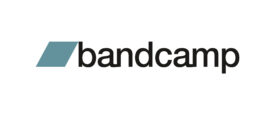
Hit the Road, Jack: A Guide to Touring

Touring enables you/your band hone your craft night after night, make new connections, and ultimately to reach new audiences.
Before Booking a Tour - Define Your Tour Goals:
- What are your objectives? Is it to promote a new album, gain exposure in specific regions, or expand your fanbase?
- How long would you like the tour to be? Consider the time and financial resources you can allocate. Often the artist is required to apply for funding to help offset travel costs.
- Which cities or regions do you want to target? Research areas with a jazz scene and potential fanbase.
Research Potential Venues and Festivals:
- Which venues and festivals are booking artists similar to you? Where have artists a couple of steps ahead of you toured to?
- Research Jazz-specific websites such as All About Jazz, Jazz Near You, and Jazzwise for venue listings and festival announcements.
- IMC’s Navigator Residencies develops national mobility and a network of Arts Centres gradually with jazz audiences - check out our partners.
- Artist management and booking agencies: If you already have an international profile, reach out to agencies specialising in jazz to see if they are interested in booking a tour for you. Agencies will often take a 15-20% cut or charge a monthly fee.
Lists of Festivals for Touring Ideas:
The Journal of Music List - Ireland, UK, Europe, USA
https://www.europejazz.net/fes...
PRS List of Festivals Taking Submissions
Free Jazz and Avant Garde Festivals List
Networking and Building Relationships:
- When pitching to venues and festivals for your tour you’ll either be cold-calling or utilising existing networks. It’s so important to continue to grow your networks and build rapport by attending gigs and industry events - introducing yourself, following up and staying in touch. Your track record and buzz around your music go a long way too. Here are a few strategies to consider:
- Attend jazz conferences and festivals: These events provide excellent opportunities to connect with industry professionals, fellow musicians, and potential bookers.
- Reach out to musicians and bands in your target cities: Collaboration can help you secure opening slots or shared bills, giving you exposure to new audiences.
- Leverage social media: Engage with venues, promoters, and fans on social media platforms. Create campaigns that have the potential to go viral.
- Use direct email addresses (not info@emailaddress.com) - often readily available on internet or make your best guess
Digital Assets:
- An Electronic Press Kit (EPK) is a crucial tool for promoting your music to venues and festival organisers, as well as to press (press reviews outside of your hometown
- You’ll also need a Tech Rider. Your Technical Rider exists to help the sound engineer, promoter or venue by answering questions that could take up precious time at a soundcheck.
- Ensure consistent branding across your promo materials - this builds recognition, helps you to stand-out, to look professional and to appear reliable.
Craft a Compelling Pitch:
- When approaching venues and festivals, your booking proposal should be concise, engaging, and professional. Here are some key points to include:
- Introduce yourself and your band, highlighting your accomplishments, accolades and unique sound.
- Explain your tour goals and why you believe the venue/festival is an excellent fit.
- Outline the specific dates you are available and propose potential performance options (headline show, support act, workshop, etc.).
- Mention any promotional activities you are willing to undertake to help market the event.
Miscellaneous:
- Start with an Anchor Date and check which other festivals happen around
- Check funding Arts Council calendar for ‘Festivals’ round to strategically plan when to pitch (at least 6 weeks from this grant deadline).
- Culture Ireland have international touring funding rounds every quarter.
- Arts Council tends to have a touring round mid year.
- Consider selling merch for additional revenue streams and audience engagement.
- Consider Sustainable and Green Touring - some funding initiatives favour this
- Consider Gender Balance and Equity, Diversity and Inclusion (EDI) in your line-up - along with taking social responsibility, bookers are starting to adopt EDI policies and quotas, and audiences are gradually starting to take a stance too.
Follow Up and Confirm:
- No response doesn’t necessarily mean “no”, and often a “no” means “not at this time”.
- If you don’t hear back about your booking proposal, follow up with a polite email or phone call to enquire about the status of your application, or to update any new information (e.g. a confirmed date on your tour)
- Once a date is confirmed, ensure you receive a written agreement or contract detailing the terms and conditions of the performance.




